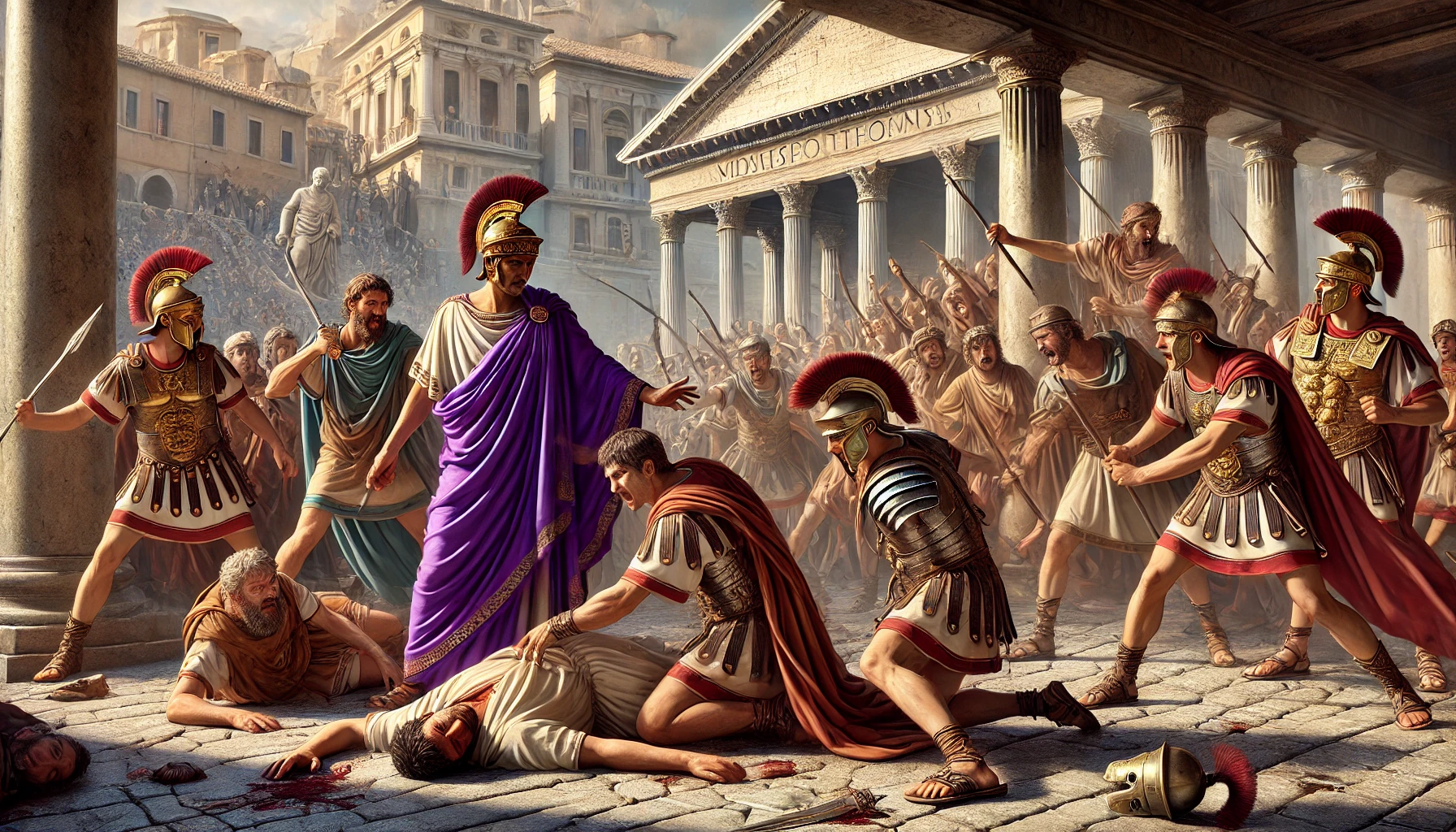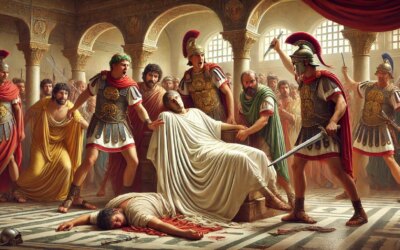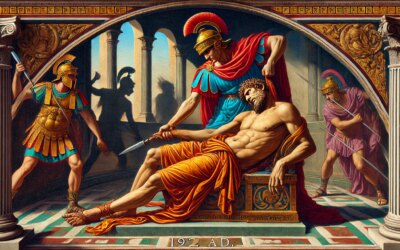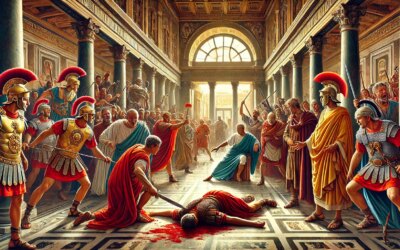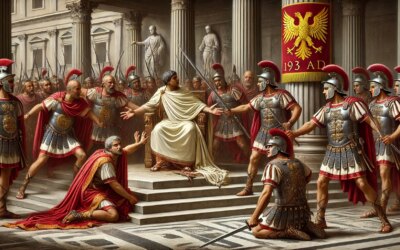The Fall of Galba: A Bloody Betrayal
On January 15, 69 CE, Emperor Galba was brutally assassinated in the streets of Rome, an event that would ignite one of the most chaotic years in the empire’s history: the Year of the Four Emperors. His short reign, marked by financial austerity and an inability to secure military loyalty, ended in a violent coup that demonstrated just how fragile imperial power had become.
Galba’s Rise to Power
Servius Sulpicius Galba, a veteran general and governor, had been declared emperor in 68 CE following the rebellion against Emperor Nero. His ascent was backed by the Senate and the Praetorian Guard, but his rule quickly turned sour. Upon taking power, Galba implemented severe financial measures, cutting rewards to soldiers and executing many who had supported him. This move alienated both the army and the Praetorian Guard, the very forces that had helped him seize the throne.
A Critical Mistake: The Succession Crisis
One of Galba’s fatal missteps was his handling of the imperial succession. In an attempt to secure his rule, he adopted an heir, Lucius Calpurnius Piso Licinianus, overlooking Otho, a powerful noble and former ally who had expected to be chosen. Otho, feeling betrayed and desperate, conspired with the disgruntled Praetorian Guard to overthrow Galba.
The Assassination in the Forum
On the morning of January 15, 69 CE, as Galba rode through the Forum, a group of Praetorian Guardsmen, loyal to Otho, turned against him. Surrounded by his few remaining supporters, Galba attempted to assert his authority, but the soldiers ignored him. According to the historian Tacitus, one of the guards struck the first blow, and soon others followed, hacking him down in the open streets. His head was severed and paraded on a spear, a brutal symbol of Rome’s shifting allegiances.
The Aftermath: Rome in Chaos
With Galba dead, Otho was quickly proclaimed emperor. However, his reign was short-lived, as rival factions within the empire contested his claim. The assassination of Galba had not secured stability; instead, it plunged Rome into further turmoil, as three more emperors—Otho, Vitellius, and finally Vespasian—would rise and fall within the same year.
Lessons from Galba’s Fate
Galba’s brief and turbulent reign highlighted the dangers of imperial rule in the first-century Roman Empire. His failure to command loyalty, his alienation of key supporters, and his underestimation of political rivals led to his downfall. His assassination was not just the murder of a man but a clear message: in Rome, power was fleeting, and the loyalty of the legions determined an emperor’s fate.
A Turning Point in Roman History
The Year of the Four Emperors remains one of the most dramatic power struggles in Roman history. Galba’s assassination was the catalyst that set it in motion, proving that even emperors who ruled with the Senate’s support were not safe from the ambitions of the military and the schemes of Rome’s political elite.

